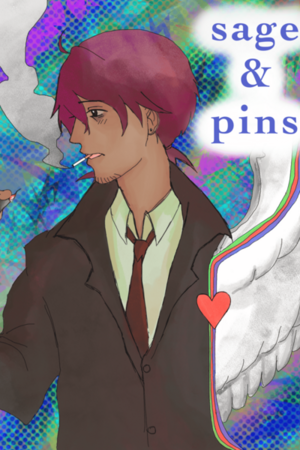Chapter 4:
Chapter 4
Choices of Steel
The first few days, his job was limited to emptying the waste from the latrine pit behind the outhouses along the western side of the compound. He then had to carry the stinking buckets outside the village, around the palisade, taking care not to spill anything as he crossed the frozen burial grounds beyond the barricade, and then dump the contents of his buckets into the deep waste pit on the other side of the graveyard.
Toiling knee-deep in the waste at the bottom of the pit, Lami was thankful for the subzero temperatures of the planet. Had this been a tropical paradise, he would have been swarmed by flies or other similar insects by now.
The hygiene of the job didn’t bother him. In fact, he thought, even if he had been biological, he would have been perfectly safe from the alien bacteria living in the waste. Having evolved on a planet entirely separate from his own, the biochemistry of the Minvali world wasn’t even remotely compatible with that of any other planet—the proteins the alien bacteria needed for survival simply didn’t exist in biochemistries from other worlds. Even if he had been biological, he would have been perfectly safe from infection here.
What did bother him, however, was the smell. It was easy to think it shouldn’t—just as he could turn off the sensation of pain and register damage to his body only as data points, he could also turn off the sensation of smell. Unfortunately, Lami thought, that didn’t help with the stench as much as one might think.
As a Special Agent, his nose was a thousand times more sensitive to smell than that of a biological Terran. But most of the chemical compounds his olfactory system was designed to identify were of industrial origin and were not associated with any fragrance at all. In his brain, they simply registered as data points: the air around him now contained so and so many parts per million of dimethylformamide, or whatever compound he was currently analyzing.
He could still feel the scent of all molecules a biological human could identify with their nose, though. And that meant he knew exactly what the latrine he was carrying smelled like, even if he had disabled the actual sensation.
Actually, after thinking about it a little more, he realized he didn’t know what it smelled like. The chemicals in the alien waste he was carrying weren’t even remotely the same as those in a Terran latrine. To a biological human, the waste he was toiling in would probably be entirely odorless.
But the brain is funny when it comes to smells, Lami thought.
Pain was a different beast. After it was over, even a biological brain could only really remember pain as data points. You could remember the knowledge that you had been in pain, and you could remember the type of pain you experienced, but you could not remember the actual sensation of pain. It was all very fortunate for the biologicals, the Special Agent mused. Otherwise, their brains would probably be overwhelmed with memories of pain after a lifetime of trauma—both minor and severe—to their bodies.
But smell… smell, the brain could still remember in detail even after a lifetime. He had heard, more than once, about old women or men walking past a pastry shop and suddenly remembering—in the most vivid detail—the sensation of sitting on a sun-drenched patio, eating the freshly baked bread their mothers had served them as children.
Unfortunately for Lami, the same was true for the stench of the latrine. Despite this alien waste being practically odorless, and despite having turned off his olfactory sensations, his memories of what his brain expected the pit he was standing in to smell like were strong enough to make him queasy.
For three days, he emptied the latrine first before breakfast, once again before the afternoon meal, and finally one last time after the rest of the village, with the exception of the guards, had gone to bed. When he wasn’t working, he was forced to stand for hours—seemingly freezing—in the middle of the village square, waiting for his next work order.
After his probationary period, his responsibilities were extended to include waste management for the large war beasts—the gigantic omnivorous creatures their warriors rode—that the Minvali kept in the compound. Lami wasn’t sure if this was really an improvement, but at least he didn’t have to spend most of his day standing motionless in the square anymore. Despite using the time to improve his knowledge of the Minvali language, it was starting to get a little boring just listening to the women and men in the village, hour after hour. He was not yet ready to start talking to them. The revelation that he now, to some extent, understood their language was a card he didn’t want to play too early.
* * *
The next piece of the puzzle Special Agent Lami was trying to solve arrived twelve days later.
It was all well and good to empty the latrine in the village and move the waste to the larger pit outside the walls. But for every bucket he removed from the compound, the level in the pit outside rose by just as much. Eventually, it would overflow.
Before that happened, it became Lami’s job to extend it. This had probably been done for centuries, ever since the village was first established here, but the meandering path of old waste pits had now been lost to time and eternal snow.
Now, he was using a sharpened piece of bone to dig through the upper layer of permafrost next to the old pit. It was hard work, but his biotic muscles made the process much quicker. The frozen ground was almost as hard as the bone blade he used to crack it open, and more than once, his tools splintered and had to be replaced.
Eventually, he penetrated the ice. Now in the warmer soil beneath the frozen layer on top, digging was much easier.
A day later, he had excavated a pit the size of a car. It would be enough for a few months of waste disposal for the village—perhaps as much as half a year.
Lami didn’t mind the work. Not only was digging through the soil more pleasant than carrying Minvali waste, but it was also different from the job he had been forced to do earlier. Despite still being hard labor, the task felt less menial to him. Granted, it was a little cumbersome to perform with his wrists tied together, but it wasn’t too bad. The bone tool he used was not that difficult to grip, even though he couldn’t freely move his hands.
With the full strength of his biotic muscles, he buried the digging pole into the ground. At first, the compact soil resisted it, just as it had for the past several hours. But then, suddenly, the two-meter-long tool of sharpened bone almost effortlessly slipped into the ground, as if he had cracked open the ceiling of some underground cavern.
He had not. When he lifted the bone blade out of the hole he had made, it was covered in rotting waste. By accident, he had penetrated the wall of the old waste pit, and now its contents—still liquid this far beneath the permafrost—began to flow into his newly dug pit.
Lami didn’t know how the Minvali would react to his mistake. Perhaps this was the way they always did it, he thought. He didn’t know enough about the alien culture to be sure. At first, the waste from the old pit only leaked slowly through the hole he had made, but as the pressure mounted, the structural integrity of the dirt wall deteriorated and in an avalanche of fetid liquid, his newly excavated pit was filled to his waist with waste from the old one.
And floating in the rotting goo was the white bone of a Terran skull.
The Minvali had not only encountered the previous Sunguard expedition to the planet, but at least one of the expedition members had died here—and the Minvali had simply thrown the body into their waste pit.
Carefully, he felt around in the liquid waste, trying to get a sense of what else was hiding there. It didn’t take him long to sort out the bones from at least five different individuals, hidden and forgotten in the old pit like garbage left outside to rot. Chances were, if he dove headfirst into the other pit, he would find the remains of the other expedition members as well, but he was not in the mood for that.
For now, it was enough to know that this was the final resting place of the expedition he had been sent here to find. He didn’t want to assume the Minvali had encountered the Terran expedition and murdered its members, but right now, Lami had to admit, the evidence did not look promising.
Not wanting to reveal to his captors that he had found the remains of his deceased colleagues, he carefully reburied their bones in the soil in the side of the pit with as much respect as he could muster, despite the filth surrounding him. One day, they would be brought home to their families, but today was not that day.
This was just a start. Despite having now found the missing expedition members, Lami’s mission here was far from over. Knowing where their bodies had ended up did not tell him what had happened to them before being tossed into the pit. There was much more for the Sunguard Special Agent to uncover on the frozen wastelands of Epsilon Indi A 1.
Author's Note
The story you're reading is one of many set in the Lords of the Stars universe I've been creating over the past 30 years, where familiar characters and places reappear, and new favorites await discovery. Check out my profile to explore more stories from this universe.
While Choices of Steel is entirely standalone, I think you’ll particularly enjoy Soldiers of Heart and Steel, which serves as a prequel to this story, and Conscience of Steel, which is something of a sequel.
Visit the official Lords of the Stars blog for more information about this hard sci-fi universe: https://lordsofthestars.wordpress.com
If you liked this chapter, please consider giving it a like.




Please sign in to leave a comment.